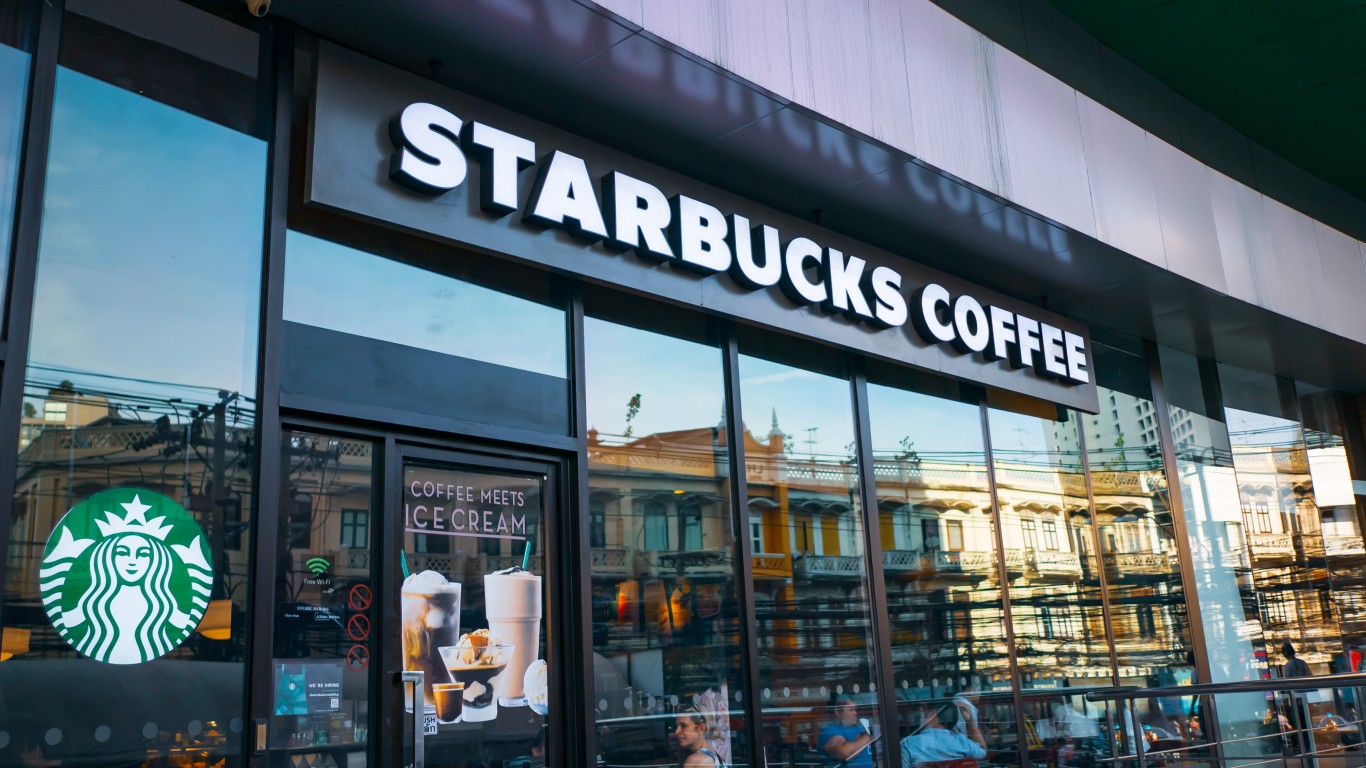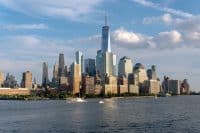
Starbucks is one of the most successful fast-food chains in the world. Its revenue per quarter is over $8 billion. It has over 35,000 stores worldwide. Starbucks does so well because it charges an extraordinary price for its coffee.
The most expensive drink at Starbucks is the Honey Almond Milk Flat White at $5.95. Presumably, it has risen to that level because the cost of the ingredients has risen sharply due to inflation. At $2 a pound, coffee prices are one of the highest since 2020 when the price reached $2.60. Starbucks’ margins are squeezed if it does not raise prices, and based on foot traffic patterns, Starbucks doesn’t have that challenge. (These are 21 household items with soaring prices.)
Starbucks charges almost $6 for a drink because it can. The price shows the power equity. Apple enjoys the same advantage. The iPhone is more expensive than most smartphones. People want an iPhone, so they pay the premium.
What could hurt the Starbucks brand?
Starbucks has had an ugly battle with unions that represent its in-store workers. Workers object to pay packages that can be as little as $15 an hour. Former CEO Howard Schultz was hauled before a Senate committee to explain his aggressive tactics to keep unions out. It brought the practices to the attention of the public. (These are the states with the most union membership.)
The Guardian recently published an article with evidence of manipulation by Starbucks management. A reporter wrote: “NLRB regional offices have issued 93 complaints covering 328 unfair labor practice charges against Starbucks since late 2021. This included actions by federal judges and rulings about 23 Starbucks workers who have been dismissed for union activity.”
Starbucks has reached a critical point of decision. It can fight workers store by store and continue to be punished for its practices. Alternatively, Starbucks could recognize the unions and start collective bargaining. This will likely cost Starbucks’ margins as hourly wages rise but would end countless hours spent trying to end union participation in its store operations. The eventual growth in legal judgments and expenses against Starbucks could harm margins even more.
Starbucks’ front-line employees tend to be popular with customers. At many locations, they know the customers by name. This creates a particular bond of sympathy. Over time, this will tend to cause customers to lend the workers a measure of support. Eventually, customers will go elsewhere. It is not out of the question that they could begin a boycott, which would harm Starbucks’ margins and hurt its brand.
100 Million Americans Are Missing This Crucial Retirement Tool
The thought of burdening your family with a financial disaster is most Americans’ nightmare. However, recent studies show that over 100 million Americans still don’t have proper life insurance in the event they pass away.
Life insurance can bring peace of mind – ensuring your loved ones are safeguarded against unforeseen expenses and debts. With premiums often lower than expected and a variety of plans tailored to different life stages and health conditions, securing a policy is more accessible than ever.
A quick, no-obligation quote can provide valuable insight into what’s available and what might best suit your family’s needs. Life insurance is a simple step you can take today to help secure peace of mind for your loved ones tomorrow.
Click here to learn how to get a quote in just a few minutes.
Thank you for reading! Have some feedback for us?
Contact the 24/7 Wall St. editorial team.

